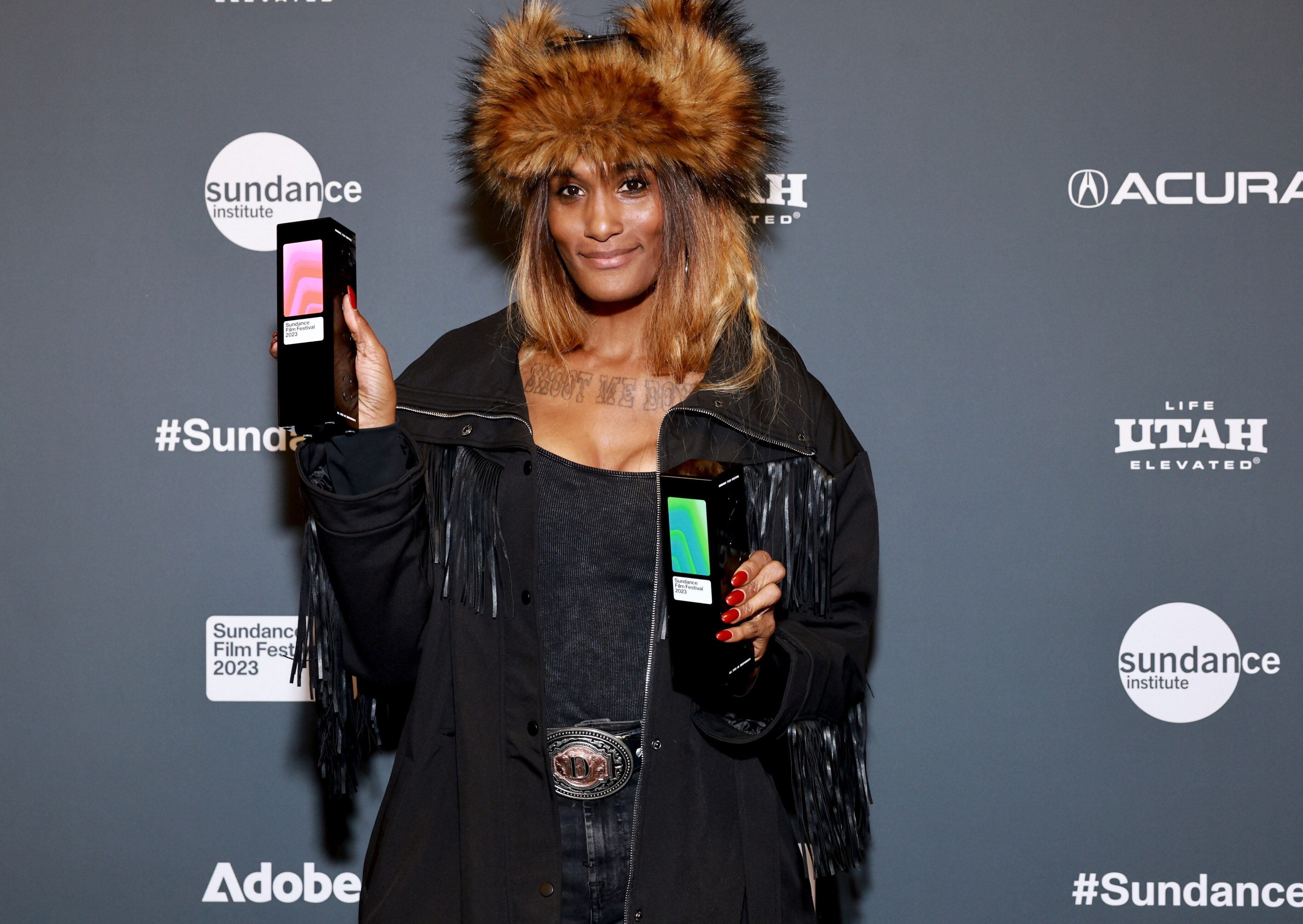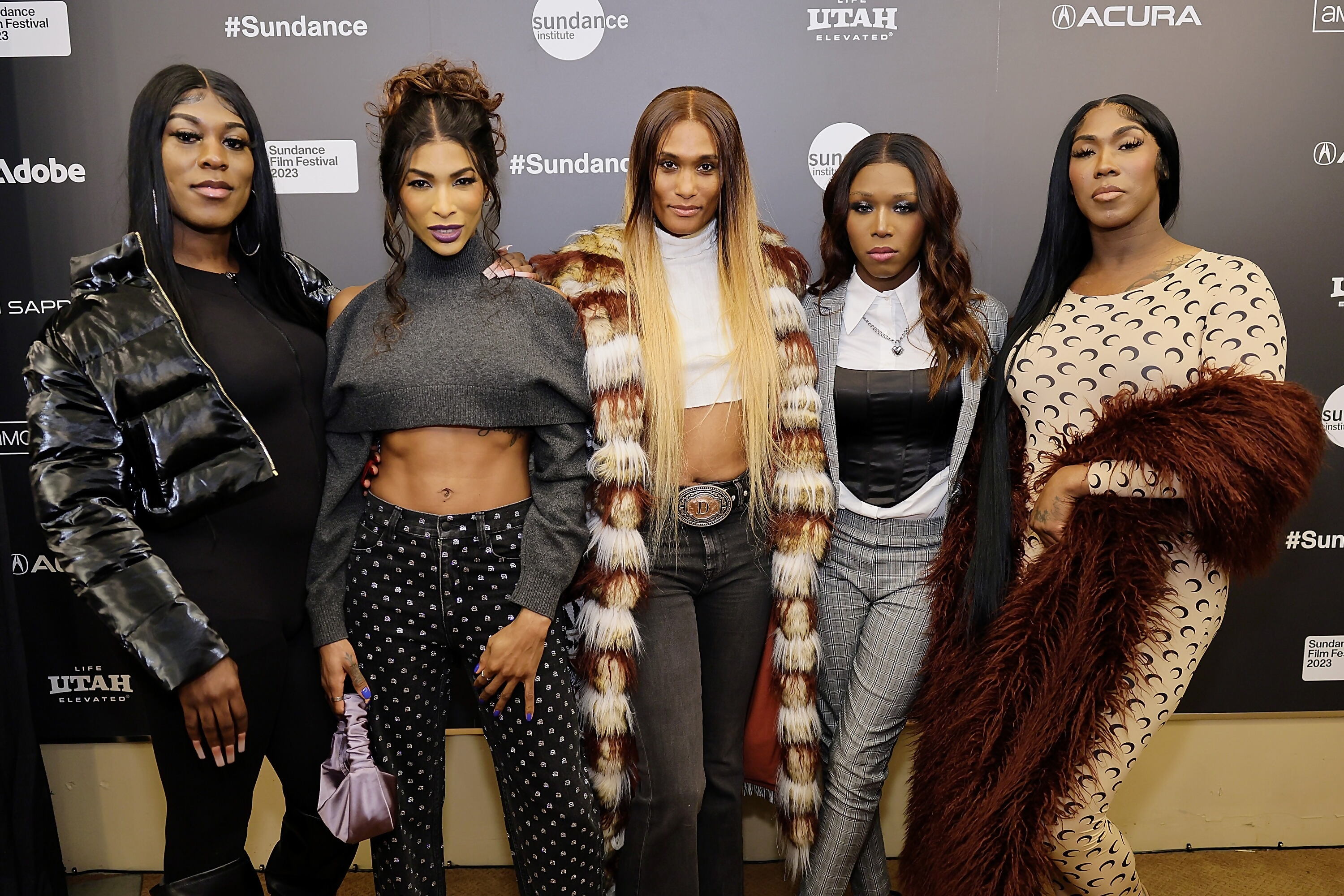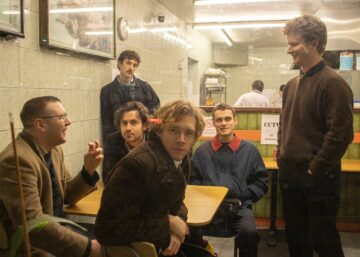
D. Smith’s debut feature documentary Kokomo City is as provocative as it is heartfelt. We chat to the former music producer about bringing the trans experience to the big screen.
D. Smith’s directorial debut is about to hit UK cinemas. The film, shot in striking black and white, focuses on four Black trans sex workers. Smith filmed the women in their homes, at peace and at their most normal.
Keen to avoid what she calls a “red carpet narrative”, Smith portrays the women as funny, insightful and completely self-aware. One of the women in the film frankly notes that in order to make money from sex work as a trans woman, they need a big dick.
It’s this provocativeness and shocking, yet refreshing refusal to sugarcoat anything that earned Kokomo City rave reviews at the Sundance Film Festival earlier this year. whynow sat down with Smith to talk about her film, shocking people and the surprising connection between Kokomo City and Joker.

(L-R) Liyah Mitchell, Dominique Silver, D. Smith, Daniella Carter, and Koko Da Doll attend the 2023 Sundance Film Festival “KOKOMO CITY” Premiere at Egyptian Theatre on January 21, 2023 in Park City, Utah. (Photo by Neilson Barnard/Getty Images)
You have a background in music. When did it become apparent that there is also a filmmaker inside you?
Before I shot the film, I [envisioned] what Kokomo City looks like. And [the film] looks very similar to what I wanted it to be, which is not guaranteed. I knew there was something special there, but I still shied away from being the director. [It] never really crossed my mind. I obviously wanted to be involved in a major way, but I was led to believe that this was my opportunity to do what I saw in my head.
It’s very striking, because it’s all in black and white. Did you always know that you wanted this to be in black and white?
Oh, yeah. I was shooting photographs around the city in 2019 and I would put a black and white filter on them. For months, that was my thing, [I was] obsessed with black and white anything. And I was like ‘God, I would love to see this style in motion.’ Then I started to think about what would be a great subject matter.
Um, hello? Women that are not being seen or protected or heard, like myself. Even though these beautiful women do sex work and I came from a different background through music, we’ve all been ostracised, we’ve all been looked down upon, we’ve all been judged and overlooked. I was drawn to really reach out and tell their stories.

Liyah Mitchell in KOKOMO CITY, a Magnolia Pictures release. Photo courtesy of Magnolia Pictures.
You’ve previously spoken about, especially with trans women, there’s this ‘red carpet’ approach to these stories. You chose to shoot these women in their homes, which is very intimate.
It was very important that I went in the opposite [direction] of the ‘red carpet’ narrative. We have to look like we have it all together, like we’re glamorous and we’re just movie stars. And like we have no serious real life threatening issues in our life, or like we’re not starving.
I love when the girls are on the red carpet. I love it because it’s very validating and they deserve it. But let’s not paint a fake picture, like we have it all together. I wanted to give the women the opportunity to be their authentic selves.
Cis-gendered women like myself, we had that moment where women were allowed to be a bit laddish, a bit loud and, and potty mouthed after Amy Schumer and Jennifer Lawrence rose to fame. Was it important to you to be shocking?
You have to shock people. That’s what’s gonna wake people up. If someone’s half asleep, you’re not gonna rub their heads softly and whisper sweet, you’re gonna scare the hell out of them, right?!
I did use different tactics to bring awareness to what the women were saying, but we [trans women] don’t have many options. We have this monotone type of thing of we’re being killed, this many women have died this year, health care, legislation… It’s just the same thing over and over. They’re very serious issues, very relevant, valid issues, but it’s always about how you say something, right?

Daniella Carter in KOKOMO CITY, a Magnolia Pictures release. Photo courtesy of Magnolia Pictures.
A lot of films that do focus on the transgender experience focus on the transition itself. Whereas in Kokomo City, it’s the everyday life, and it’s these women’s experiences and the skin they live in now.
That’s way more interesting to me than how someone is transitioning. Yes, it’s interesting, but what’s the point of that? How is that moving the needle forward?
We really need to have real discussions, but we need to have those in a way that the masses understand. We don’t need to sound like beauty queens and be so perfect, because this is a turn-off.
As a trans woman, I don’t even know how to talk to trans women anymore, I don’t want to offend anyone. And that’s bullshit. I want to live my life. I want to be free to talk to people, not afraid or feel like I’m walking on eggshells, even with my own people. I want to start this new trajectory of fearlessness, openness in a very transparent way.
Did you have any pushback with this? Because it is so honest, and very raw.
I didn’t want this to be a political film. If it touched politics and people’s views, that’s part of the process of really getting the word out. I have to respect where everyone is on the spectrum of what’s fair, what’s not fair and politics, right? But I didn’t want any of the girls to feel censored or like as a director that I was just forcing them to say one thing. Sorry, I forgot your question…

Koko Da Doll in KOKOMO CITY, a Magnolia Pictures release. Photo courtesy of Magnolia Pictures.
Just if you experienced any kind of pushback to the film?
No, especially in the film festival circuit. In London, we got a standing ovation for, like, 10 minutes. It was so beautiful, remarkable.
But it’s okay, if I did get pushback. I almost welcome it, because it gives me a sign that we’re reaching people outside of the LGBT fortress. That’s very important.
I didn’t make this film for queer people or for transgender people. That would be quite silly. It was made for the masses. The more negativity I get, the more I know we’re pushing through.
You’ve said that the 2019 film Joker was a surprising inspiration. Can you tell me a bit more about that?
I hate that I didn’t have a better comparison, but it’s actually quite perfect. We’ve always seen Joker already being the Joker, doing what we all know he’s going to do, we’re expecting these things. It’s kind of like that with trans women, people expect us to be a certain way.
When [the Joker] was bare-faced and raw, that was way more compelling, and striking and even scary to me, because I was so uncomfortable. So here we are, getting a really deep background of someone that we didn’t know how he lived, how he really spoke outside of doing his thing in public, like we do as trans women. I was really inspired by [Todd Phillips’] approach. It was so captivating to me.
I noticed that the camera is often quite low with a lot of body shot from behind or from the front. Was that a conscious choice?
Oh, absolutely. It empowers subjects when you’re lower. In real life, if any of my friends are spilling their guts, sometimes I just lower my posture. I do that naturally, because I’m really engaged in what they’re saying.
I literally was on the floor [while filming]. With the opening sequence I was in her closet, because that was the best angle for me. I was sitting on shoes, wigs and coats, I found a really comfortable spot in the closet.
In real life, I look at everything. When people are talking to me, even though I’m paying attention, I look at what they’re wearing, how their feet are positioned, or the bottle of water in the corner. I’m very inquisitive.
Can we trust that this is the first of many films for you?
Please, please trust that. I actually have four projects on the table. I am in early development for my next film already, and we’re very excited.
Kokomo City arrives in UK & Irish cinemas on 4 August.




